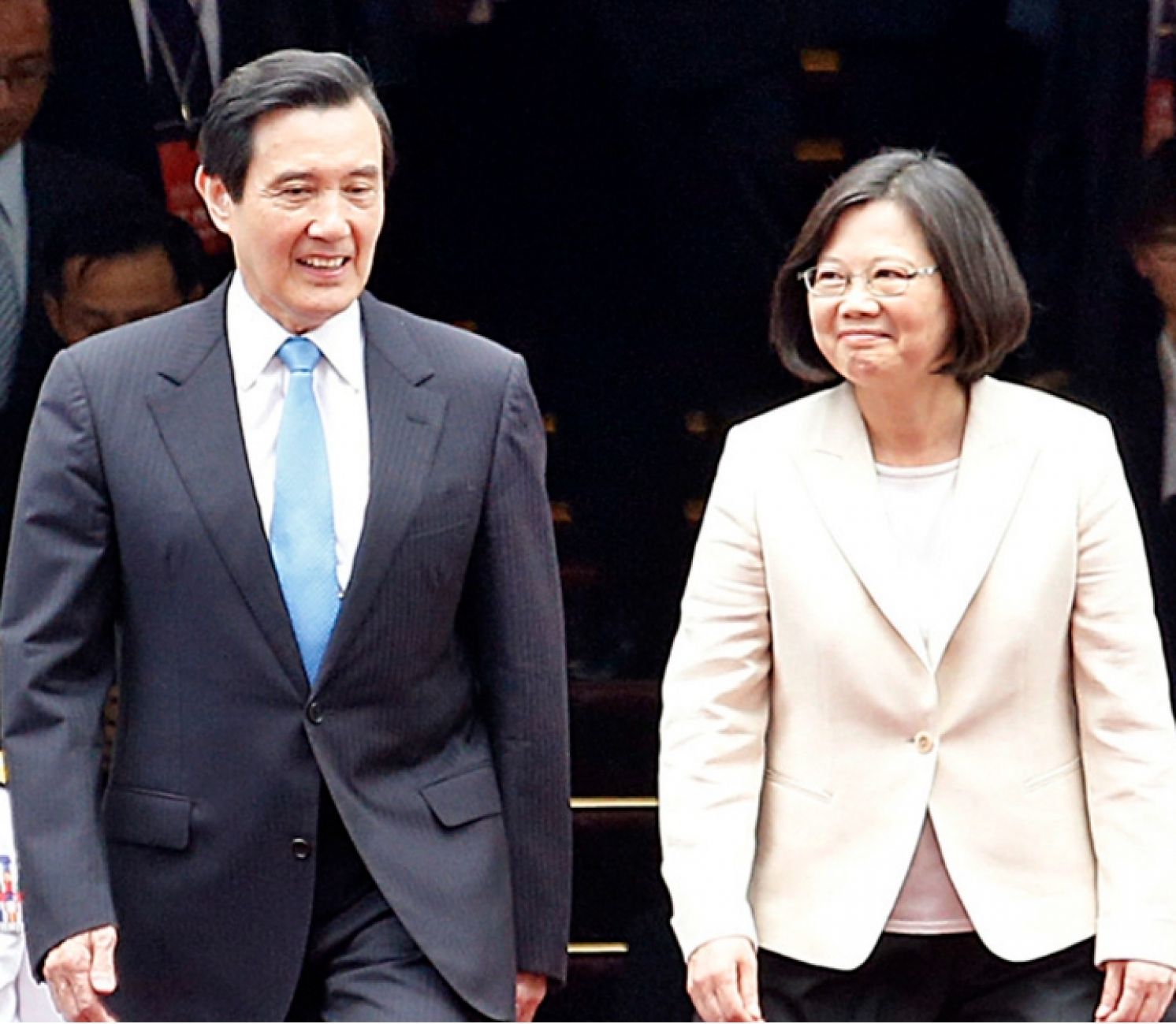
On Visits to Mainland and U.S., Ma and Tsai Compete Articulating the R.O.C.
United Daily News Editorial, March 20, 2023
Former President Ma Ying-jeou will visit mainland China next week to pay respect to his ancestors during the Qingming Festival and to conduct youth exchanges between the two sides. Mr. Ma will be the first former president of the Republic of China to visit mainland China since the Nationalist withdrawal to Taiwan in 1949. Although there will be no Ma-Xi meeting this time, the visit takes on even more significance: for from historical and connotational perspectives, Ma will elucidate in person the constructive ambiguity of the "1992 Consensus." Whether mainland China will seriously accord due respects to "the Republic of China on Taiwan" and treat Ma with special political status, shall become a litmus test on mainland China's latest policy towards Taiwan.
Mr. Ma's mainland visit coincides with President Tsai's transit in the United States. At a time when the Democratic and Republican parties are engaging in fierce fights and using the "Taiwan card" to compete who hates China more, President Tsai's transit diplomacy has become more political than ever. She will deliver a speech at the Ronald Reagan Presidential Library in California and meet with Speaker Kevin McCarthy of the House of Representatives. Washington-based Hudson Institute also plans to award President Tsai their leadership award at a New York event, but it is still unknown if there will be any "special guests." Under the spotlight on the international stage set by the United States, whether President Tsai will highlight the "Republic of China" or "Taiwan" in her remarks will certainly become the spotlight.
In their respective speeches, President Tsai and Mr. Ma will unavoidably compete on the interpretation of democracy and national identity, even war and peace. Tsai and Ma's "Republic of China" share the same name but with different connotations. This is probably the only time when the former and current presidents will interpret the nation’s identity on their visits to mainland China and the United States respectively. In this competition, what matters more is which "R.O.C." can bring security and sustainability to its people.
It is not a coincident that they planned these visits at the same time. They are all pawns in the chess game between the United States and China. On the part of Washington, it uses "Taiwan to contain China" and intervenes in Taiwan's internal affairs. On the part of the mainland, besides strengthening its defense and economy, it also re-instates the platform for exchanges and dialogues between the two sides of the Taiwan Strait. The United States urges Taiwan to be well prepared for war, while the mainland favors dialogue. At this juncture, to avoid raising tensions in the Taiwan Strait, President Tsai is planning to meet with Speaker McCarthy in California, instead of inviting him to visit Taiwan; while Mr. Ma insists on conducting youth exchanges and ancestor worship in the mainland and refrains from a second Ma-Xi meeting in order to not let Washington double down on the Taiwan card to provoke China. These nuanced diplomatic maneuvers serve to show that, in this geological chess game, Taiwan has no command of herself and cannot afford to do without a balanced thinking, regardless if you side with the United States or try to befriend mainland China.
Taiwan has long been immersed in fierce fighting among political parties, so much so that national identity and economic development have become campaign tools in the elections. Therefore, Mr. Ma's mainland visit has been viewed from the perspective of how it will affect election campaigns. From the viewpoint of national interest, Mr. Ma's visit may create room for respectful dialogue, offering opportunity also for the Tsai administration to resume dialogue between Taiwan's Strait Exchange Foundation (SEF) and the mainland’s Association for Relations Across the Taiwan Straits (ARATS). However, if the DPP smears Mr. Ma's visit with a red brush, it may not score again. After all, most people on Taiwan now would prefer to see peace, not war, on both sides of the Strait.
As a former president, Ma's visit to the “mainland area" as prescribed by the Constitution is itself highly sensitive politically. Hence, how Beijing treats "former President Ma” becomes key to the trip's success. On the same token, how the United States receives President Tsai will be subjected to similar evaluation. In the chess game between mainland China and the United States, we will see how the status of the R.O.C.’s existence and security in the Taiwan Strait play out.